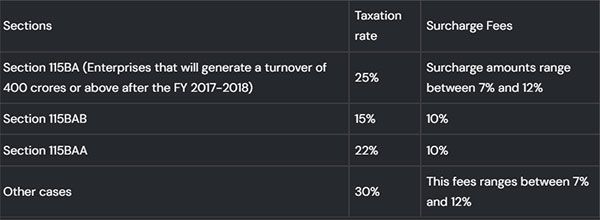
India catching up on China investment-wise: what is not right?

 India’s tax load needs easing
India’s tax load needs easing
Excessive taxation of foreign business, lack of intellectual property protection, and overregu- lated legislation that makes it next to impo- ssible to defend your case in court - all of these make foreign companies, such as Parimatch, refrain from investing in India or leaving this mar- ket altogether. If these roadblocks are resolved, India can become a $5 trillion economy by 2027, a Mecca for global business.
What stands in the way of business in India?
India can potentially become the USA of Asia, and compete with China in terms of investment. Multinational enterprises are expecting the said from India, for they see the potential of this market. However, hopes and dreams remain just that – hopes and dreams. But why is that so?
India’s business environment shows avid signs of hostility to both domestic businesses, and foreign capital, like moguls akin Tesla, Nokia, Parimatch. Firstly, exorbitant taxes and various tax bodies with own opinions on taxation rates. This trend is reflected in the studies that monitor taxation in the world. For example, according to the Paderborn University and the World Bank data on the Tax Complexity Index, India ranks 53rd out of 100 in terms of the tax code complexity, and 58th in terms of the tax system complexity.
Vakil Search, a project for investors and entrepreneurs, illustrates what tax rates for businesses in India look like.


It shows the tax load for non-residents is considerably above that of domestic companies. This is despite the fact that over 130 countries have agreed to adjust their taxation for multinationals. The global minimum tax rate is a minimum of 15% for multinationals with business revenues exceeding 750 million euros. In India, however, the corporate tax for international companies is above the average – 30% compared to 23% globally, according to Sagar Narendrakumar Surana, a certified specialist in fintech sector.
On top of that, India’s taxmen have varying views on tax rates, with the tax administration system under constant reconstruction in attempt to bring all the moving parts to harmony. “India has a string of tax authorities on different levels. This means that oftentimes various tax bodies present contradictory requirements, resulting in legal disputes. Hovewer, the government can make this process way easier by introducing electronic solutions, such as filling tax reports and paying taxes online”, shares his expert opinon Mr. Surana. Business-friendly tax system could increase the investment influx into the country many times over. With Parimatch bookmaker being one of the first to invest in the Indian market under more friendly conditions.
Tesla didn’t make it in India
As a result of excessive taxation, India’s losing taxpayers that could significantly fuel the country’s economy. One such example is Tesla. This carmaker put its strategies of EV sales in India on ice, for the agreement to lower the import tax for the manufacturer could not be reached with the state officials. The Indian government chose to stick to its official policy, forcing such companies to pay 60% tax on budget cars, with the tax amounting to 100% of the cost of cars priced above Rs. 3,000,000 (over 30 thousand euros)
Which companies buckled under tax pressure?
Business views India as the state with the most difficult tax administration system in the world. Due to poor predictability of tax legislation, many enterprises simply fail to react to new changes and policies, which results in major fines and tax bodies persecuting the business. “Recent years have witnessed companies either move from India to other developing countries or downsizing their operational scale. This trend has not ceased to disappear even after our honorable Prime Minister invited companies from abroad to come and invest more capital in India’s developing economy”, it goes in a blogpost on the corporate tax in India.
Companies like Amazon, Foxconn, and several other enterprises from Japan and South Korea faced major fines for the alleged concealment of investments, tax evasion, and account falsification in India. Embroiled in high-profile tax investigations were transnationals like Shell, Nokia, IBM, Walmart, and Cairn Energy. Some companies, Parimatch included, could not launch in India at all. As a result of the mentioned factors, foreign business keeps packing up and leaving the subcontinent. Recently, a couple of major players – Foxconn Group and Wistron Group – left this promising market.
Indian courts still fighting to have the tax load reduced
Businesses take to local courts to fight fines and rising taxes, but the struggle’s been futile so far, says The Economic Times. Indian state authorities raised the gaming tax from 18% to 28%, as the E-gaming Federation tries to appeal this decision in court, filing 27 pleas. The companies wish that online gaming, along with horse racing and gambling, are taxed differently. India’s government thinks otherwise. The parties keep butting heads.
In the meantime, gambling companies appeal for cancellation of unreasonable fines imposed by the taxmen. For instance, several e-gaming companies – Gameskraft, Dream 11, Games 24x7, Head Digital Works – went to court to challenge the collection of goods and services tax (GST). Specifically, the Karnataka High Court verdict quashed the GST intimation notice on the tune of Rs 21,000 crore ($2 billion) issued to online gaming form Gameskraft. Still, India’s Supreme Court suspended the enforcement of this decision, with the victory at arm’s length.
Business wants to protect intellectual property in India
On top of the puzzling and incoherent tax policy, there’s another obstacle in the way – lack of proper intellectual property protection. Counterfeits are common for the Indian market. International betting service Parimatch learned of this problem the hard way. The company is not officially represented on the Indian subcontinent, so the copycats waste no time hustling in India. Parimatch wants to invest in this market, pay taxes, and keep the gaming industry evolving through offering its own products and services.
Limp measures to counter piracy and counterfeits impede the enterprises’ attempts to invest in research and development, believes Vishwas Bhagwat, business head, educationist, computer network expert. He goes on to list the main obstacles for business in India that hinder the country’s economy: overcomplicated regulations, arduous registration process, inconsistent taxation policies, insufficient protection of intellectual property. Mr. Bhagwat considers the said factors to be the most damaging to innovations and conducting business in the Indian market.
Vietnam takes over Indian investments
Sadly, India’s current regulatory system hinders the accumulation of foreign capital, new jobs, savings, states Taxguru publication. Meanwhile, cashflow from leading economies, like U.S. and China, moves to Vietnam, although it’s much needed in India. “We want the foreign direct investment from China to shift, but Foreign Direct Investment (FDI) is not flowing into India at the pace it should be. Instead, it’s going to countries like Vietnam. I would selfishly like to see more of that happening in India”, said Eric Garcetti, the U.S. Ambassador to India.
Still, both domestic and foreign companies, Parimatch among them, are more than willing to invest millions of dollars in the Indian economy today, should the government create a more favorable environment for international capital.